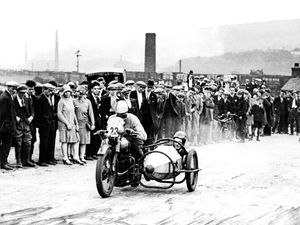Cannock Chase child killer Morris was chained until the end
He murdered one child and was the prime suspect in the deaths of another two.
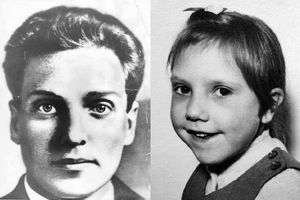
But Raymond Morris - the Cannock Chase killer - died a 'peaceful' and 'painless' death despite his final years being crippled with leukaemia and kidney failure, an inquiry has found.
He was able to have a say in the timing of his death by deciding to stop medical treatment and after 45 years at Her Majesty's pleasure, he was even given a taxpayer-funded funeral attended by prison staff.
An investigation by Prisons and Probation Ombudsman Nigel Newcomen into the 84-year-old's death has revealed how his health gradually deteriorated over the past three years, showing the first signs of kidney failure and chronic myeloid leukaemia in 2011.
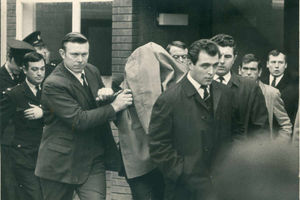
Until that point he had lived a healthy life behind bars, the report states.
Then he was given a series of treatments, including blood transfusions, a biopsy, and regular dialysis. During this he asked medical staff not to resuscitate him in the event of a cardiac or respiratory arrest.
On March 1 this year he signed a disclaimer rejecting active medical treatment and died 10 days later - but did not want his family to know.
He was transferred to the medical unit at HMP Preston in Lancashire on March 10 and died the next day.
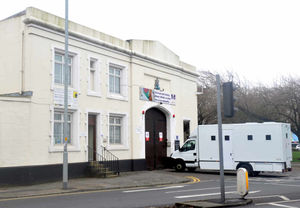
His final moments are described by Mr Newcomen: "Later, the man's breathing was shallow and his pulse weak. His eyes were closed and he shook his head when asked if he was in pain. At 4.45pm, he became unresponsive, but did not appear to be in pain or agitated. At 7.15pm, he became agitated and he was given a sedative. He died peacefully at 7.40pm."
Morris remained handcuffed and in chains throughout treatment in 2013 and 2014 and was constantly accompanied by two prison officers when outside of his cell, the report states.
But despite him being a murderer Mr Newcomen reprimands HMP Wymott, also in Lancashire, where he was serving his sentence before being transferred to Preston for keeping the killer restrained during treatment.
He said keeping 'sick' and 'frail' prisoner restrained while receiving life-saving treatment would be considered 'inhumane' according to a High Court ruling.

Mr Newcomen said: "The clinical reviewer concludes that the overall standard of clinical care the man received was equal to that he could have expected in the community. While there were some examples of good practice in the support provided at both prisons, there were no formal care places at Wymott. I am also concerned that he appears to have been restrained for hospital visits, including while undergoing dialysis, despite being elderly, frail and in very poor health.
"This is a matter I have raised with the prison before and the Governor needs to ensure that staff fully understand their legal obligation in relation to the use of restraints for seriously ill prisoners undergoing life-saving treatment."
The investigation also reveals that Morris considered one last bid for freedom in June 2012 when he instructed a solicitor to make an application for release on compassionate grounds. But the papers were never filed.
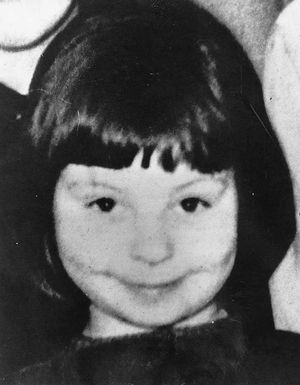
Then two years later after he stops his treatment he looks to have given up on life by ruling out another application for release, saying he had 'nowhere to go' and no 'support network'.
Morris was sentenced to life imprisonment in February 1969 at Stafford Assizes for the rape and murder of seven-year-old Walsall schoolgirl Christine Darby in 1967.
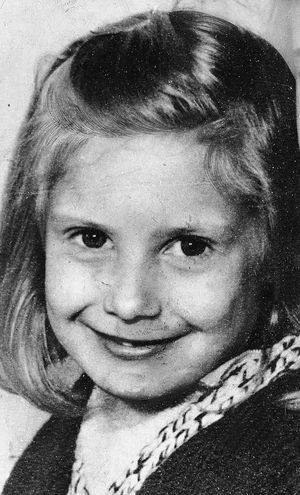
He was also the prime suspect in the killings of Diane Tift, aged five, of Bloxwich, and Margaret Reynolds, six, of Aston, who vanished in 1965.
All three bodies were found dumped within miles of each other beside the A34 on Cannock Chase in 1966 and 1967. Each had been sexually assaulted and strangled. The killings horrified the nation and sparked one of the biggest murder investigations in British criminal history.
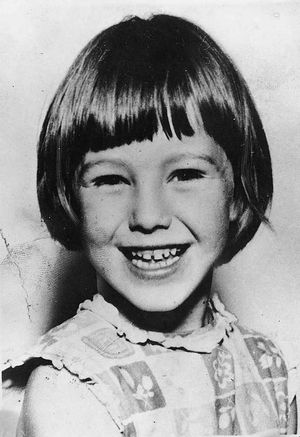
Morris, who was denied parole in 1999, was one of Britain's oldest serving prisoners. He was said to have lived a solitary and largely anonymous existence in HMP Wymott where he was contained from 2000.
In recent years his solicitors began challenging his sentence through the courts, claiming to have uncovered police misconduct. But the case was rejected by the Criminal Cases Review Commission in 2010.
The police manhunt to catch Morris was larger than that of the infamous Moors murders by Ian Brady and Myra Hindley.
The operation saw 150 detectives visit 39,000 homes, interview 80,000 people and check more than a million car records before Morris's arrest. Morris was spoken to four times but slipped through the net when his wife gave him an alibi. She later became a key prosecution witness.
The murders of Diane Tift and Margaret Reynolds have never been solved and Morris was never charged over their killings.



